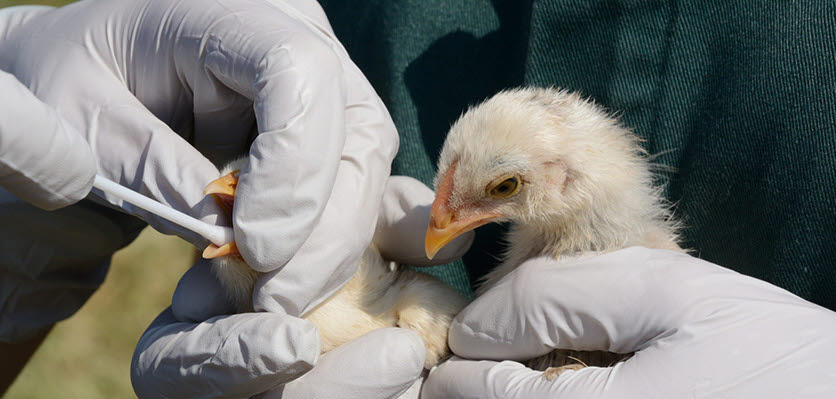Diseases

Disease control in animals is rigorously monitored in Australia. Avian, equine and bovine-based diseases pose a threat not only to the animals themselves but to the wider agriculture and food industries. Our Animal Disease section contains everything you need to know about these viral nasties and their symptoms.
Avian influenza or 'bird flu' refers to influenza A viruses found chiefly in birds, but infections with these viruses can occur in humans. The risk from avian influenza is generally low to most people because the viruses do not usually infect humans.
Equine influenza is the disease caused by strains of influenza A that are endemic in horse species. The disease has a nearly 100% infection rate in an unvaccinated horse population that has not been previously exposed to the virus.
Foot and mouth disease is a highly contagious and sometimes fatal viral disease of cloven-hoofed animals. Studies show that a major outbreak could cost Australia over $9 billion in lost export earnings over an eight-year period.
Hendra virus is a highly lethal disease that affects horses and the people who work closely with them. The virus has not been shown to be highly contagious, however, it is highly lethal.
Parvovirus infection (known as parvo) is a viral illness that causes vomiting, bloody diarrhoea and weight loss in dogs. In puppies aged between six weeks and six months, it can be fatal. Vaccination is vital, as the virus can live in the ground for up to 12 months.
Rabbit calicivirus is highly contagious and damages the internal organs of rabbits. Vaccinations for pet rabbits should always be up to date in accordance with the controlled release of the virus, and to minimise instances of general contagion.
